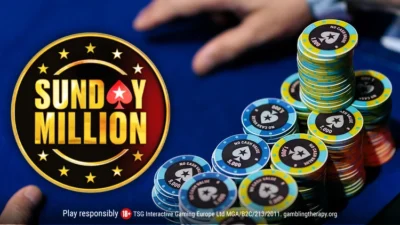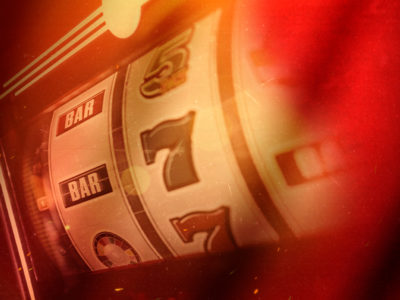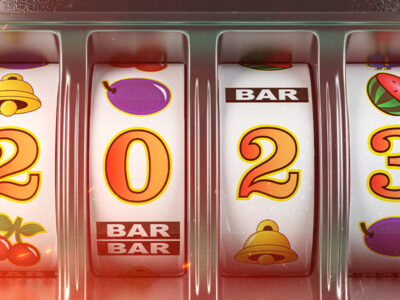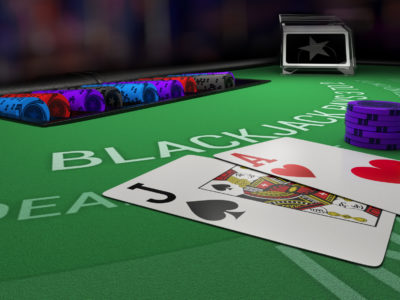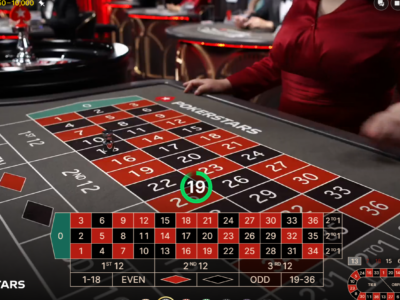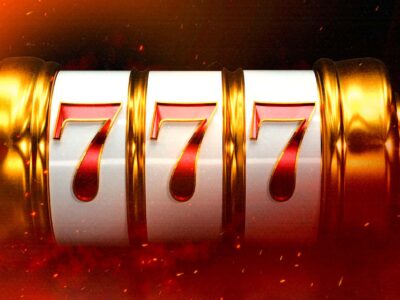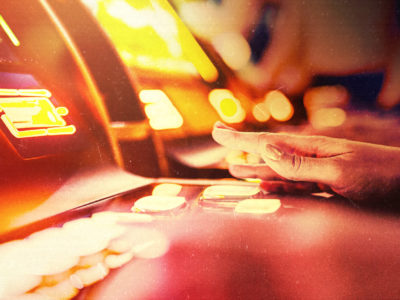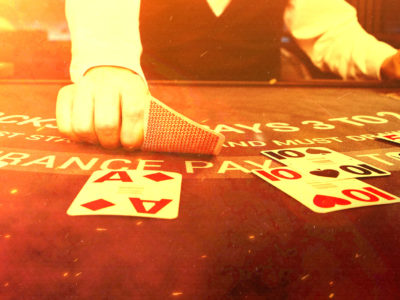Being a poker pro is not the only way to get involved with the action. Pursuing a career as a poker dealer can be a rich and rewarding path. There’s a lot more to it than dealing cards and counting chips. You’ll also be responsible for making the game a great experience for the players.
How do you become a poker dealer?
You’ll need to start with a love for poker, as well as a certain skill set. Then it’s a case of getting the training you need to pass the auditions and get your dream job in a casino.
Job role and skill set

Poker dealing involves keeping up with hands, counting chips, calculating pot and bet sizes, and also much more…
As a poker dealer, you will be responsible for shuffling cards, counting chips and moving bets around. You’ll need to keep control of the game, enforce the rules and deal with any bad behavior, and keep the atmosphere happy and relaxed.
Of course, you will need to learn poker to be successful. Customer service is also very important. Your aim is to make the game a great experience for the players – whether they win or lose.
Before you learn how to become a poker dealer, it’s worth asking yourself whether you want to, and whether you fit the skill set. If you want to be a poker dealer, you will need to:
- Understand all types of poker games, not just Hold ‘em
- Use mental arithmetic skills to calculate pot and bet sizes, count chips and ensure all bets are correct
- Be sociable and friendly and have a pleasant demeanor
- Stay patient, focused and attentive for long hours without making errors
Top Tip: Job skills for dealing poker can be learnt, though it will help if you are sociable and good at maths. You should have a love for poker and willingness to learn all variations of the game.
Training and dealer schools
Becoming a poker dealer is a reasonably accessible career path. You do not need any particular qualifications, though you may need high school level maths to gain your license.
Casinos will usually offer audition style interviews. As a candidate, you’ll be asked to deal poker games and will be assessed on speed, accuracy and ability to handle unusual circumstances.
If you are already experienced dealing at home games, or you catch a lucky break, then you don’t technically need training, or you may be given in-house training by the casino. Realistically, attending a training course will open up many more job opportunities.
You can find accredited dealer schools in the UK, Europe and across the US. Check in your country to find dealer schools. Training typically takes a couple of months and may involve 100+ hours of learning, mostly practical but with some lectures.
Carefully consider your options. Courses vary not only on price, but also on content and quality. Look for a dealer school that has plenty of hands-on training. Classes should be reasonable sizes, with lots of interaction with tutors. If the dealer school can offer help with future employment, then this is a major plus.
Anyone who wants to become a poker dealer will need to obtain their gaming license. This is usually the responsibility of the individual, not the employer. You can apply for this within your own country or state. You will be required to provide photo ID, pay a fee, and pass an extensive background check.
Top tip: Although training is not always strictly necessary, it’s unlikely that you’ll find a job as a poker dealer (or pass the interview) with no training or experience. Research dealer schools carefully and pick a course that’s right for you.
Job opportunities and placements for poker dealers
Now that you know more about how to become a poker dealer, it’s time to consider job opportunities. How and where can you find work?
Land-based casinos are the main source of employment. Bigger chains bring on more staff, but don’t be afraid to look around in smaller card rooms, especially if you are just starting up and looking to gain experience.

It can be difficult to come by, but poker dealers can find regular work in land-based casinos, working up to more prestigious venues
At first, it may be difficult to gain a position as a poker dealer. Many casinos ask newer dealers to start with table games like roulette and blackjack, which are much easier to deal. They may also rotate staff between table games and poker so that dealers cover every game.
Having a knowledge of tables games will help you to become a more well-rounded casino dealer and open up job prospects in more casinos. Once established, you can progress to dealing just poker.
If you like to travel, then consider looking for jobs as a poker dealer or croupier on a cruise ship. You can also follow the poker circuit around the globe. Major live series create significant influxes in the number of dealers employed. The flipside to this is that the work can be seasonal.
Top tip: It may be difficult to get a job straight away exclusively as a poker dealer. You can get in the doors of more casinos if you are willing and able to deal table games and work your way up.
Poker dealer working hours, earnings and benefits
Before you go rushing into any career, it’s important to properly understand what the job involves. How physically and emotionally demanding is poker dealing? How do the benefits stack up? Here are the ins and outs of the job.
Long hours – Let’s start with the main gripe of poker dealers. It’s normal to work long, often unsociable hours. This can include night shifts. Poker doesn’t stop. The action tends to pick up later on or during holidays. Just ask anyone who’s ever sat down at a 3am cash game. This can be emotionally demanding, but also physically demanding. You will be stood up for long periods, reaching across the tables.

Poker dealers work long hours at the tables, but get to work in an exciting industry and meet interesting people
Sociable and involved with poker industry – Although you won’t be expected to chew player’s ears off during a game, you’ll spend lots of time interacting with people from all different backgrounds, meeting top pros and learning poker as you’re doing it. Dealing poker is an excellent way to be involved with the industry.
Opportunity to travel – Poker is an international game. If you develop a solid reputation as a dealer, you’ll have potential to find work around the world in hotspots like Monte Carlo or Macau. You may find your way onto the poker circuit and deal at exciting and lucrative events like the WSOP and EPT.
Earnings – Poker dealers tend to earn minimum wage when they first start out, although some casinos will pay extra and Las Vegas dealers tend to earn a little more. You will also be offered the usual benefits of employment, such as insurance and pensions. This is balanced by the tips.
TIPS! – What poker dealers lack in basic salaries, they more than make up for in generous tips. You can easily double your wages with tips, taking a $10 an hour job to $20-30 an hour. This will depend on the generosity of the table, the stakes, and whether you’re dealing cash or tournament poker. Whatever the case, expect tips to make up a substantial chunk of your earnings.
Top tips: Be prepared to work long hours. In return, expect stimulating contact with the poker world, possibilities to travel, basic earnings and massive tips.
Earning tips as a poker dealer
Tips are the main financial benefit for poker dealers. Some players will only tip if they win a huge pot, or leave a one-off tip after a profitable session. Others won’t tip at all, including pros who need to be careful to grind a living.
You can’t (and shouldn’t) affect the outcome or what cards are dealt. What you can do is work to improve your dealing and customer service skills so that you keep the game flowing, the atmosphere positive, and the players happy.
Being a good dealer in this way will lead to more tips. It will also give you more chance of getting noticed by the casino, who may in turn trust you to deal higher stakes tables, where you can earn – you guessed it – even more tips!
As a general rule, the higher the stakes the more tips you can expect to receive. In a $1/$2 cash game, if you are dealing 30 hands per hour with an average of $1 tips per pot, you could earn $30 an hour on top of your standard wage. Higher stakes could pull in even more.
Tournament poker works differently. Typically, a percentage of the prize pool is kept aside to be shared among the dealers and staff, around 3-4%. Again, the higher the stakes the bigger the likely bonus.
Top tip: Poker dealers can earn significant tips. Show the right attitudes, skills and customer service to encourage more players to tip regardless of results.
Advancing your poker dealer career
The progression of a poker dealer’s career generally looks similar to a lot of industries and career paths.
Once you find a job at a casino, you may have to work your way up through the ranks. This could mean starting with blackjack and then increasing your hours at the poker tables, before looking to deal more lucrative games.

You could one day be dealing at prestigious tournaments like the WSOP and EPT
Your progression, in part, will depend on your ability to find jobs where the action is busy and rich, where you can regularly deal higher stakes cash games or tournaments. Once you gain experience and make a name for yourself, you could find yourself getting through the doors of more upmarket casinos or events.
Events like the WSOP have a tough audition featuring 19 games that are played during the series. If you are experienced enough, two months working the WSOP can pay up to $15k, not to mention offer a buzz like no other.
There is also the potential for poker dealers to move up the ranks to managerial levels in the casino. With hard work and dedication, you could become a poker room supervisor or floor manager.
Top tip: Gain experience at smaller casinos before moving on to opportunities in larger establishments. Aim to deal higher stakes games or tournament circuits, or progress through the casino’s managerial ranks.
Back to TopView Other Blogs






